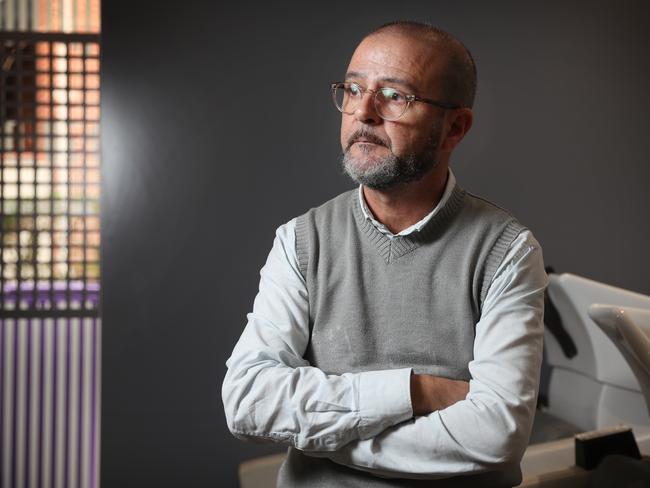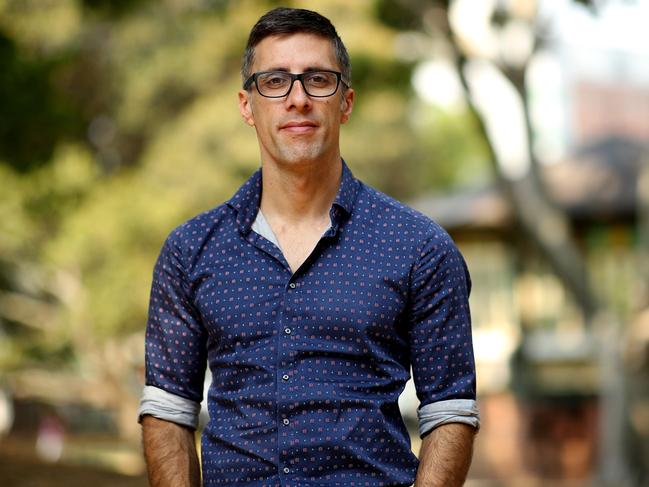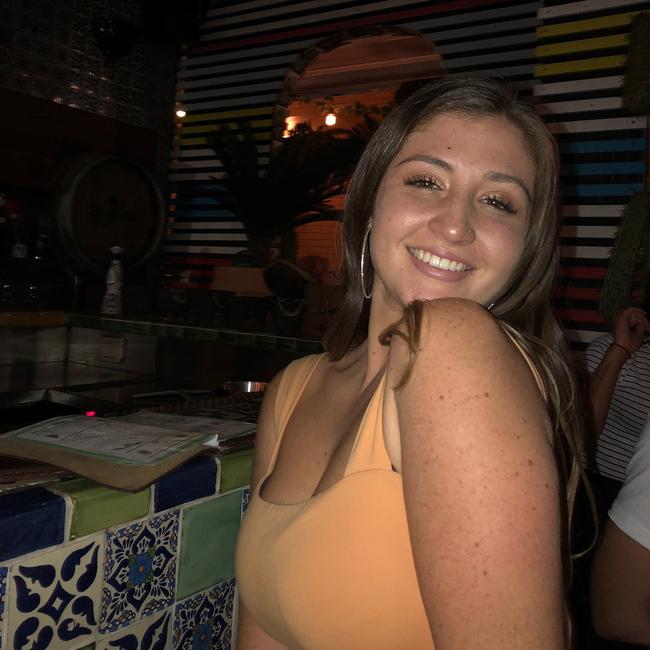Sydney father reveals daily struggle after daughter dies of GBL overdose
A single dose of GBL at a party cut short 18-year-old Marli Cartmer-Congiu’s life. Now her dad reveals his struggle to go on as police as doctors warn about the killer drug’s growing popularity.
NSW
Don't miss out on the headlines from NSW. Followed categories will be added to My News.
A grief-stricken father has revealed his devastating struggle to face life without his bright and bubbly teenage daughter more than a year after she overdosed on a powerful drug which doctors and police are now warning is soaring in popularity.
Marli Cartmer-Congiu, 18, died in 2019 after taking GBL — short for gamma-butyrolactone, and commonly known as “fantasy”, “liquid ecstasy” or “coma in a bottle”.

Marli’s father Enzo Congiu, 52, said he was still struggling to deal with the pain of losing his only child, who was “full of life”.
“It’s hard to get up in the morning. But I do what I have to. Life’s not easy. You have to get up again,” Mr Congiu told The Daily Telegraph at his Neutral Bay barber shop.
MORE NEWS
Unidentified man’s body found at Seal Rocks
Alarming discovery: virus infection picking up speed
Eastern suburbs surgeon has ban overturned
“All I have are memories now. She used to come in here and light up the room. She would help out and speak with the customers.
“This business was for her when I retire — everything I did was for her.”
Marli’s life was cut tragically short at a gathering with friends in Zetland over Australia Day long weekend.
“I will never know exactly what happened that night, but we do know she died with the drug in her system,” Mr Congiu said.
“Sadness is something like happiness, it comes and goes. My life is never going to be the same.”

Marli had recently finished her HSC at Brigidine College in Randwick and was looking forward to studying nursing at ACU.
She spoke fluent Italian, was captain of the football team and had a large social circle.
“She had time for everybody and she saw good in everybody. She wanted to do good. She wanted to help people,” Mr Congiu said.
After taking the deadly drug, she suffered irreversible brain damage and her heart stopped beating on the morning of January 27, 2019.
“The person that really loses here is Marli. She had her whole life ahead of her. I hope I can help others to think twice,” Mr Congiu said.
“Whatever you do, don’t try it. The risk is too high. For what?”
But NSW Drug and Firearms Squad boss Detective- Superintendent John Watson told The Daily Telegraph GBL was actually in worryingly high demand across the state, costing users just $20-$30 for a small vial.
“GBL is becoming more popular within the community as it is relatively inexpensive and accessible,” Det-Supt Watson said.
“The substance was once typically linked only to the party, dance and night-life scene, but it’s increasingly becoming more accessible and used by a wider demographic than before.”

Police have had success cracking down on the drug in the past, including State Crime Command seizing a haul of GBL worth $12 million last year.
“The seizure is believed to be the largest in the country and possibly around the world,” he said.
Strike Force Braky was also formed by Wollongong police this March to quash the supply of GBL in the region.
Det-Supt Watson said the purity of GBL, usually sold in fish shaped containers or a small bottle, was often hard to determine.
Once GBL enters the body it metabolises into the drug gamma-hydroxybutyrate (GHB).
“The margin between the dose needed for desired effects and the dose required to cause overdose is very small, so it’s incredibly dangerous,” Det-Supt Watson said.
St Vincent’s Hospital clinical toxicologist Dr Jonathan Brett, who has treated many patients who have overdosed on the drug in a medical withdrawal unit, said GBL was highly addictive.

“It’s a really dangerous one. A lot of people know about the risk of overdose, but not many know about addiction,” Dr Brett said.
“Many patients tell me: ‘No one really told me this (addiction) was a risk. I now find myself in this awful position’.
“If you start taking it every day you get dependent. It’s a real problem. You have to take it every few hours or you have severe withdrawals. People become confused and agitated.”
Dr Brett said the number of deaths caused by the drug, usually due to respiratory arrest, were likely under reported: “In post-mortem, it’s very difficult to pick up. It’s actually very difficult to tell if someone has died from it.”

